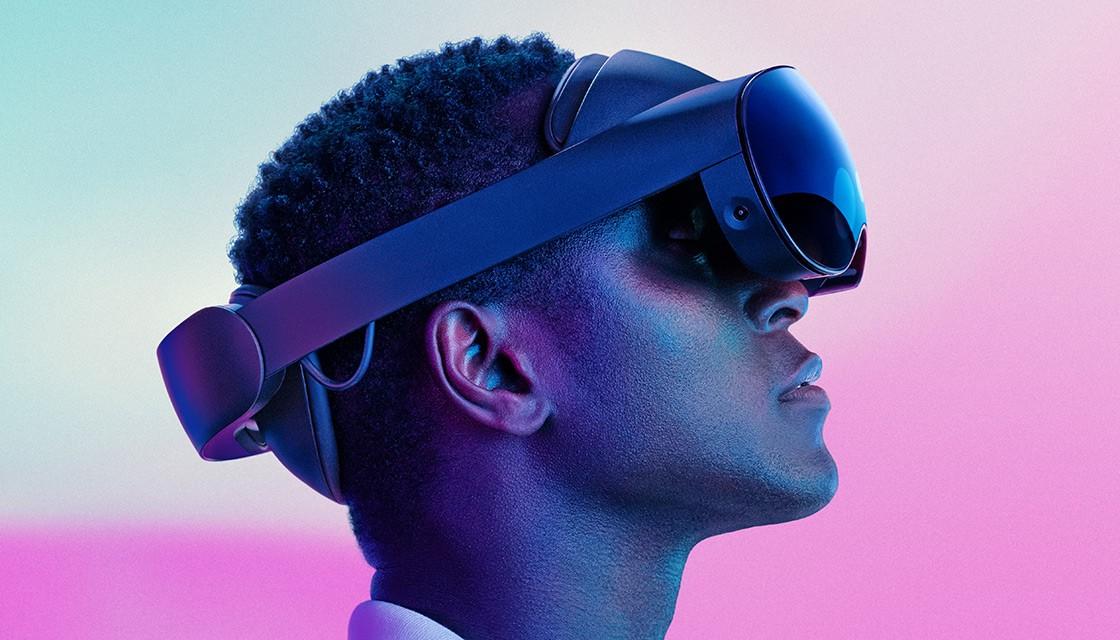Facebook company Meta has revealed its latest virtual reality (VR) and mixed reality headset, which is to be sold in Aotearoa at more than three times the price of the Oculus Quest 2 that was released in 2020.
The Meta Quest Pro was announced by Mark Zuckerberg in both human form and as his virtual avatar during the company's annual Connect conference, which was broadcast on Wednesday morning (NZT).
The device features a new outward-facing camera system that enables better mixed reality features than previous Oculus devices, so users can partake in activities such as hanging a virtual painting on their real wall or bouncing a virtual ball off a real table.
It is launching in New Zealand at NZ$2699.99 with global shipping starting on October 25.
Meta is heralding the new device as a "major leap forward for VR hardware" but emphasised it has been "built with work in mind" rather than entertainment.
In a blog post, the company said: "Meta Quest Pro is the first entry in our new high-end line of devices, and it's packed with innovative features like high-res sensors for robust mixed reality experiences, crisp LCD displays for sharp visuals, a completely new and sleeker design, plus eye tracking and Natural Facial Expressions to help your avatar reflect you more naturally in VR."

Microsoft CEO Satya Nadella also appeared in the Connect video to promote the company's partnership with Meta on products such as VR meetings in Microsoft Teams, along with Microsoft 365 app experiences and Xbox Cloud Gaming for the Quest.
In terms of tech specs, the headset will feature a new Qualcomm Snapdragon XR2+ chip with 12GB of RAM, 256GB of storage and a 90Hz refresh rate.
Meta says the resolution is four times higher than the Quest 2, which offered a per-eye resolution of 1832x1920.

The device's higher price and the pitch targeting businesses rather than individuals may have you wondering what types of companies would get decent value from it.
Mark Rabkin - Meta's Vice President of Reality Labs, Quest - told Newshub he has a few case scenarios in mind, with virtual meetings in particular being thought of as a possible way companies could cut back on travel costs.
"There will be some solo productivity and for some use cases it's great. It would be really big for three dimensional and design oriented tech work, but also, it'll be great for any sort of meeting," said Rabkin.
"VR can be a travel replacement, an all-hands meeting replacement or a conference replacement. If you save one plane ticket per year and you still feel like you've got a great experience - you still feel closeness with others, you get to really interact - if VR is able to achieve that, it'll be worth it for a business."
The Meta Connect video demonstrated various ways the company foresees the Quest Pro being used as a productivity device by musicians, designers, architects and other creative professionals.
"I think the use cases that will be more striking are ones that take you into the 'workerverse'; things where you're interacting with other humans, where you want to feel a sense of presence, where you're collaborating while working on something that's fundamentally three-dimensional or visual," said Rabkin.
"Think any kind of design - architecture or industrial design - there are already apps being launched for things like improving product photography by being able to set up lighting in a virtual space. It speeds the process up compared to in real life where you have to move all that lighting equipment around which might be more complicated."
Meta has poured significant amounts of money into its vision of the metaverse. Reality Labs, the company's metaverse division, lost US$10.2 billion in 2021 and has lost nearly US$6 billion so far this year, according to Reuters.
The Zuckerberg-led company will be hoping the Meta Quest Pro gets more people - and especially businesses - to invest in its metaverse.
Pre-orders for the Meta Quest Pro opened to New Zealanders today.



